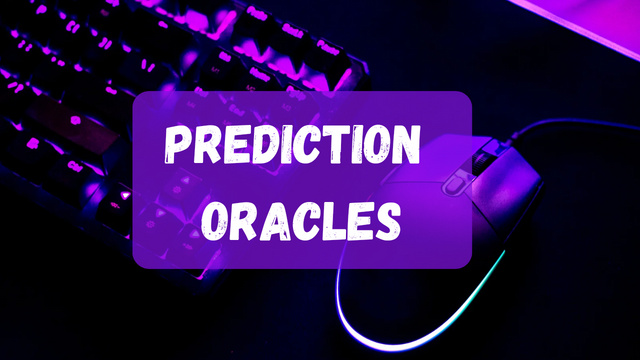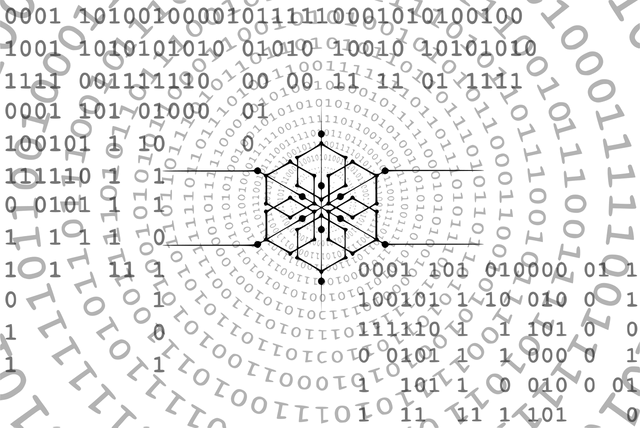Prediction Oracles
In the ever changing system of Blockchain, prediction oracles are being developed to provide predictive intelligence and decentralized decision making. Unlike traditional oracles that focus on getting real world data and validating it, prediction oracles make use of machine learning algorithms and crowd wisdom to predict future events and outcomes.

Introducing Prediction Oracles
Prediction Oracles mark a new milestone in blockchain technology enabling smart contracts and decentralized applications to foresee future occurrences and operate on the basis of informed decisions. These kinds of Oracles rely on advanced predictive analytics techniques that tap into user based collective knowledge to make predictions which are accurate.
How Do Prediction Oracles Work?
Data Aggregation: Alternatively, information from various sources such as user inputs, historical records and external APIs is combined by these oracle predictors. The kinds of information may range from political elections results to sports scores, financial trends from stock market predictions to weather forecasts.
Machine Learning Models: Machine learning models employ several machine learning algorithms to study historical data patterns, user behavior tendencies, and market moods in order to generate probabilistic projections for upcoming occurrences. Over time, these models keep on learning and adapting to changing fashions improving the prediction accuracy.
Crowdsourced Wisdom: Prediction oracles leverage collective wisdom of users via crowd sourcing methods such as prediction markets or voting systems. This is facilitated through different ways like users staking tokens or engaging in predictive gaming through which they indicate their beliefs about the probabilities of various outcomes hence contributing towards developing consensual forecasts.
Validation and Consensus: After generation, prediction made by means of prediction oracles undergo validation and consensus mechanisms that check their accuracy and deal with manipulation efforts. Thus validators can evaluate the trustworthiness of users involved in the process; analyze dynamics of the predictive market; apply statistical techniques to validate forecast integrity.
On-Chain Integration: Next, validated predictions are sent to blockchain where they become accessible by smart contracts and decentralized applications. In relation to expected results, smart contracts use these predictions as a trigger for automations; adjustments in parameters or decisions are made based on them.
Different Uses of Predictive Oracles

Financial Markets: Forecasting asset prices, market trends and investment opportunities are some of the uses of decentralized finance (DeFi) applications that predication oracles enable. These predictions facilitate decentralized financial ecosystem’s algorithmic trading, risk management and portfolio optimization.
Sports Betting: The outcome of matches, player performance and game statistics are all things that can be predicted by prediction oracles on decentralized sports betting platforms. This creates a transparent betting environment where users can place bets based on these predictions without any need for trust.
Election Forecasting: Political elections, referendum outcomes and public opinion trends are some of the things that prediction oracles provide insights into. These predictions enable interested parties like politicians, analysts and voters to make informed choices as well as anticipate electoral results.
Weather Forecasting: Weather conditions, natural disasters, and environmental phenomena are among the things predicted by prediction oracles using meteorological data and climatic patterns. These predictions support disaster preparedness, agricultural planning as well as resource allocation in vulnerable regions.
Advantages and Disadvantages
Advantages:
Predictive Intelligence: Although it is difficult to predict things that have not happened yet, predictive oracles give users a glimpse into the future, thereby allowing them to make better decisions about what they should do in order to adapt their actions appropriately depending on the anticipated circumstances.
Decentralization: They aim to decentralize prediction data feeds and thus make them transparent, fair and resilient against managements.
Disadvantages:
Data Quality: The quality of prediction data has always been a problem as predictions can be affected by biased inputs, inaccurate information or unforeseeable happenings.
Market Dynamics: Pertaining to prediction markets, there might be volatility, illiquidity issues or speculative practices which may have effects on the accuracy and stability of predictions derived from prediction oracles.
Conclusion
Prediction Oracles among others are game changers in blockchain technology because they help in developing predictive intelligence and decentralized decision making across multiple fields. By bringing together data aggregators with machine learning algorithms and utilizing collective intelligence prediction oracles provide insights into future events empowering smart contracts and dapps to navigate through complex scenarios.
X Permotion
https://twitter.com/shabbir_saghar/status/1778466062272475571?t=zWYiQJUVGHS_FB2-rrLx5g&s=19
Upvoted! Thank you for supporting witness @jswit.
Moderation
Note:- ✅
Regards,
@theentertainer
Thanks for explaining more about Prediction concepts